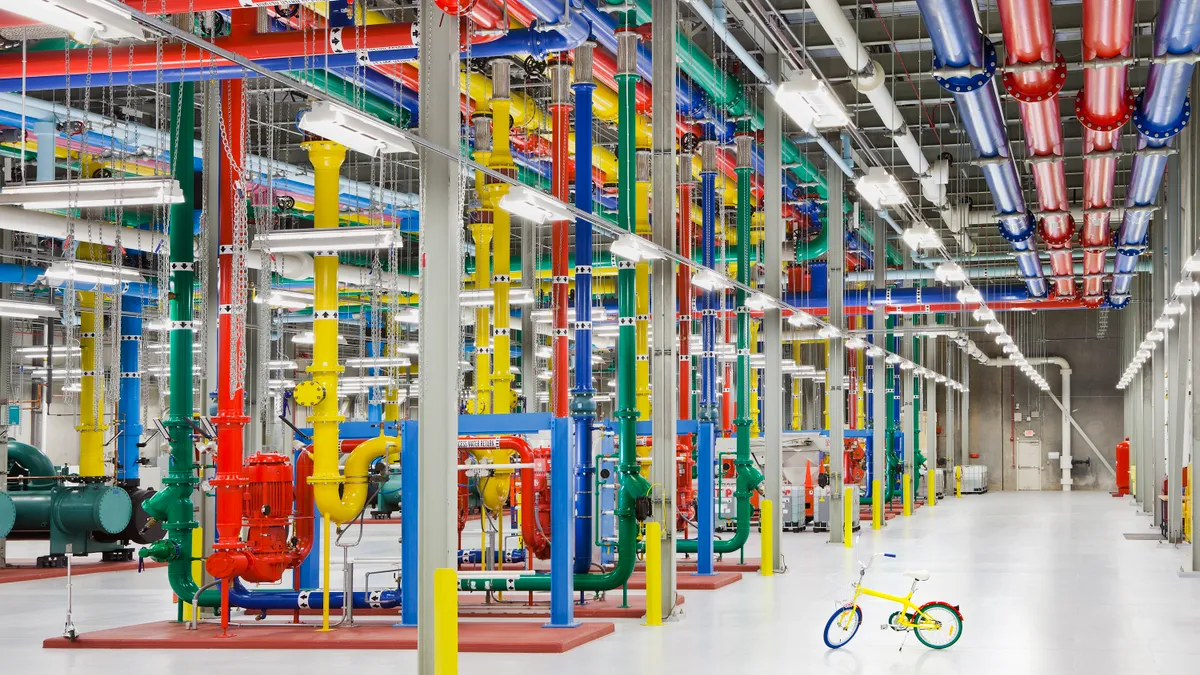Dive Brief:
-
Google Cloud acquired Cornerstone Technology in an effort to help customers shift mainframe workloads to the cloud, the company announced Wednesday. Terms of the deal were not disclosed.
-
Founded in 1989, the Dutch company's products and automated processes will serve as the backbone of Google's mainframe-to-GCP solutions. The move is in response to customers' desire to convert mainframe monolithic applications to Java monoliths or microservices, according to the announcement.
-
Cornerstone's technology takes Cobol, PL/1 or Assembler, morphs the programs into services and eventually makes them cloud native.
Dive Insight:
What's old is new again. Mainframes date back to the early 1950s, built for bulk transaction processing. With a 99.999% uptime, mainframes run in near perpetuity. It's not uncommon for a mainframe programmer to find code they wrote in operation 30-40 years later.
Central to Google Cloud's interest in Cornerstone is what type of companies run mainframes. Healthcare and financial services companies still rely on mainframes, James Staten, VP and principal analyst, edge compute at Forrester, told CIO Dive. Most of these companies are more than 20 years old and have troves of historical data.
Companies do see the cost efficiency benefits of moving applications to the cloud and said they planned to move mainframes over the next five years, Staten said. But companies aren't following through.
For Google, it's a sign of the times. Google Cloud CEO Thomas Kurian joined the company one year ago and has focused on meeting customers where they are. Under former CEO Diane Greene, Google Cloud was focused on prescribing a modernization strategy that it saw as best.
Integrating with the mainframe is "core to this new, better strategy" which is more customer-experience focused, Staten said. The move resonates more strongly with IT because so often the encouraged strategy is for companies to move off of mainframes.
Google is embracing those companies, saying it will "extend and embrace," not forcing customers to move, he said.
As part of its changing strategy, Google Cloud reorganized and cut jobs.
"We recently communicated organizational changes to a handful of teams that will improve how we market, partner, and engage with customers in every industry around the globe," a Google spokesperson told CIO Dive. The company said it is hoping to find new roles in the organization for impacted employees.
Mainframes are a space where Amazon Web Services and Microsoft Azure have not made concrete inroads. Microsoft allows customers to integrate with Office 365 wherever a company deploys and offers Azure AI on-prem. It has resources to help companies connect to the mainframe, but doesn't have specific tools for the mainframe, according to Staten.
AWS too has on-prem storage capabilities, but does not have mainframe integration, he said. It relies on third-party providers to do that.














